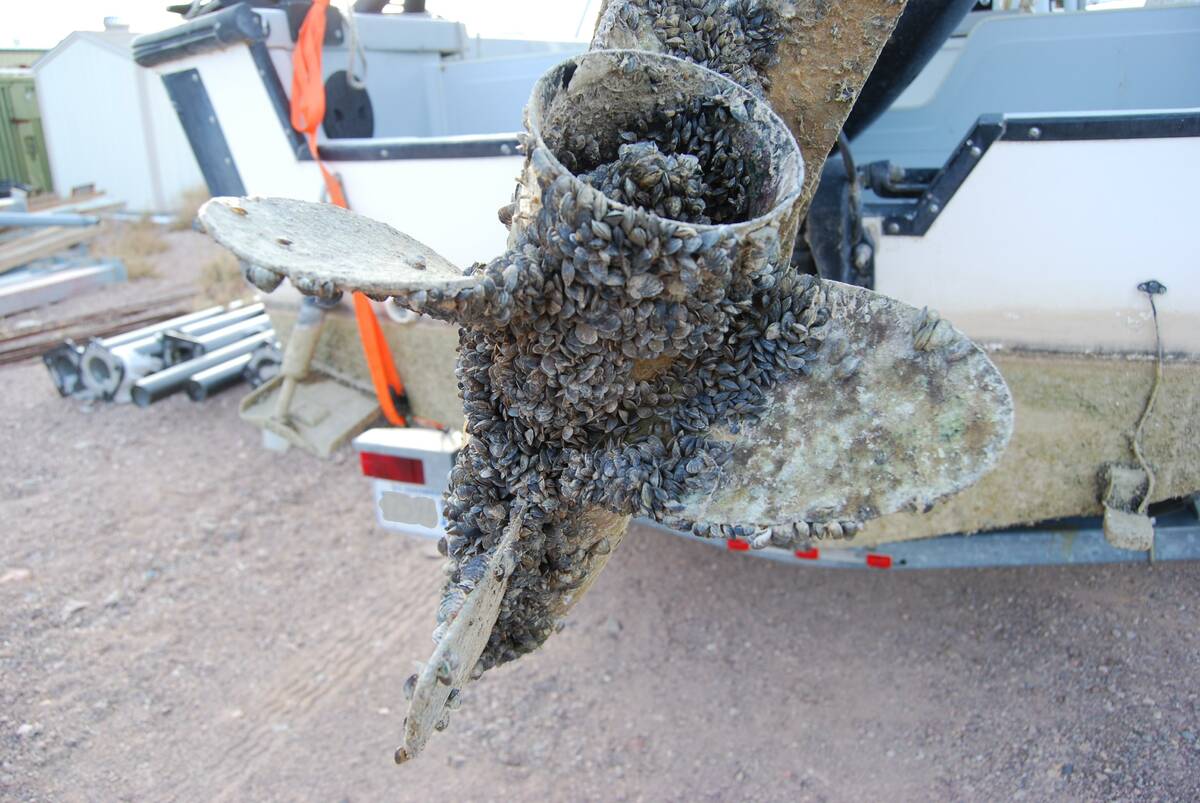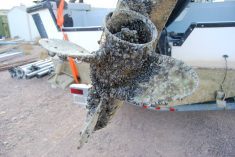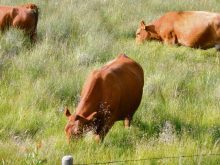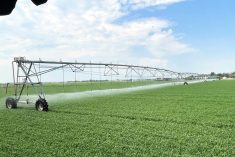“Property owners are responsible for tanks on their land. It’s a legal fact with huge implications.”
peter dunn
On-farm fuel storage is becoming the norm in the province as farmers try to dodge high fuel prices. However, storing large amounts of petroleum on the farm raises environmental and safety concerns.
Peter Dunn, of Meridian Manufacturing Group said that rules and regulations are changing the farm environment and it’s essential to change storage practices for farm fuel.
Read Also

Invasive species council lending a helping hand to Alberta agricultural producers
Alberta Invasive Species Council unveils the huge economic effect of keeping invasive species unchecked to agricultural production in the province.
Dunn told last month’s Northlands Farm and Ranch Show that Alberta Agriculture has calculated that there are about 250 billion litres of fuel being stored on farm in the province. “That’s a little conservative, but it’s a growing trend and it’s changing the way we do business,” said Dunn. Producers are increasingly buying and storing fuel on their farms as a response to price volatility and production strains.
There haven’t been any new refineries built in the province in the last 25 years yet there is a bigger demand for fuel, said Dunn so the fear of fuel shortages may also factor into producers’ decision to buy fuel in bulk.
The storage of large amounts of fuel has major financial, environmental and safety challenges on farms. “If it’s handled correctly, and we look at it with fresh ideas, it can be a very smart investment and you can tuck some money back into your pocket,” said Dunn.
Some of the present and outdated storage systems have tanks built with a thinner metal and a single vent, which create safety concerns. Many of these units are on stands, which can result in disaster if a person accidentally runs a vehicle into these stands. The current units have no proper drip plots or diking. Other units lack emergency vents, or automatic shutoffs, which can cause leakage, spills or in the worst case, leaks into groundwater.
An accumulation of spills can present environmental hazards, and can result in higher fees when it comes to loans, insurance or sale of the farm.
Double walls
New fuel tanks have essential safety features, said Dunn. Double walls and multiple openings on the new tanks help eliminate leaks. The tanks should sit on a cement pad and meet fire code regulations. Double-walled tanks help eliminate leakage, protect water on the farm and helps producers to avoid major spills, Dunn said. He emphasized protecting investments on the safety side and encouraged producers to bring their tanks down onto the ground.
The new tanks have emergency vents which protect against pressure that can build up inside. They have emergency automatic valves and shutoffs, as an extra safety feature. The tanks also have automatic nozzles and an anti-siphon valve. “If someone drives away with the hose still in the truck and rips off the hose or the nozzle, that anti-siphon hose will kick in and it will not allow the hose to run on the ground,” said Dunn.
Dunn encouraged producers to keep clean and well-kept fuel areas for safety.
When tanks are in good condition and in proper locations on the farms, producers can minimize their liability and risks. “Property owners are responsible for tanks on their land. It’s a legal fact with huge implications,” said Dunn. Upgrading high-risk areas shows due diligence.
Growing Forward has some programs which may help producers buy new fuel tanks for their operations.















